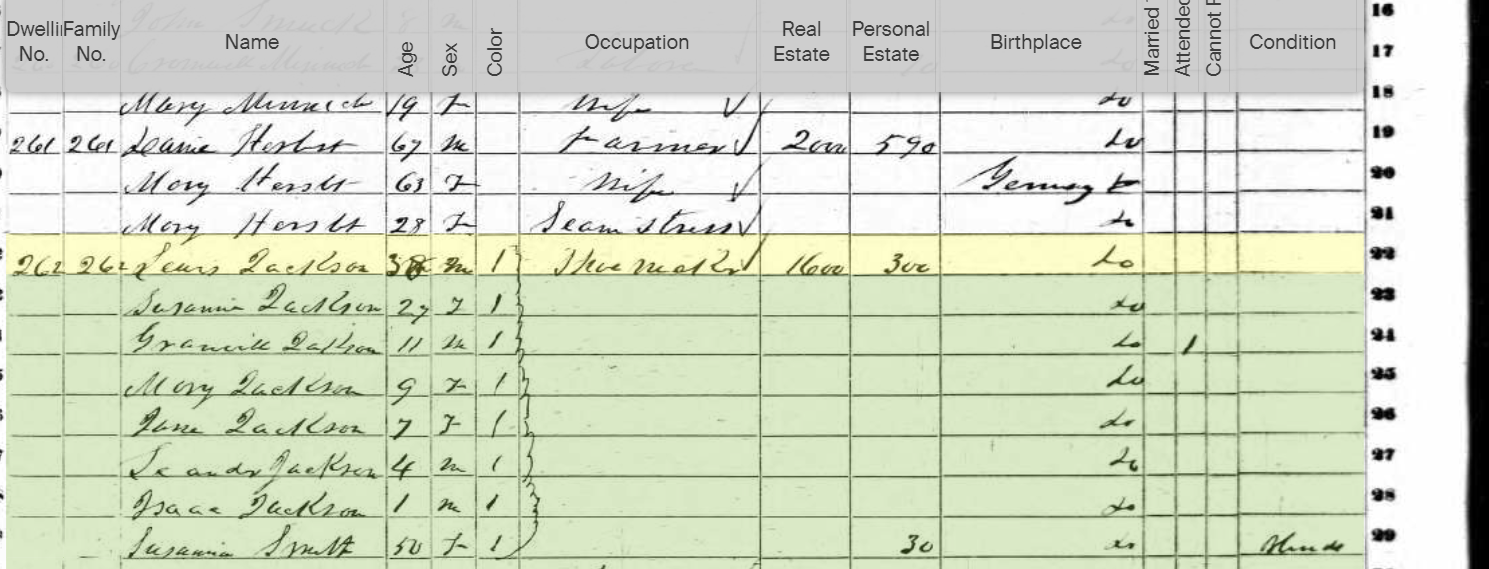While Pennsylvania is generally considered an “Indian-free” state outside of the Cornplanter tract in Warren county, census records dispute this and confirm the survival and persistence of Conestoga-Susquehannock families.
Prior to 1860, families who lived in the area could not be recorded as American Indian due to census race classifications, which did not include a category for Native people until 1860. This erasure of Native people served to bolster claims that the Conestoga-Susquehannock were extinct as our people could not be legally recorded as Native in the census until after 200+ years of concerted efforts to eradicate them. Despite these challenges, you will still find Conestoga-Susquehannock people enumerated as American Indian in York and Lancaster county from 1860, the very first year it was possible.
Many Conestoga-Susquehannock intermarried with local “colored” populations, forming distinct cultural communities of Afro-Indigenous descent. Terms such as “tribe” were often used to describe some of these communities, and those descendants eligible for enrollment today include the Jackson and Benson core families, who were not only enumerated as Native in the census, but were also involved in efforts to gain recognition. In some cases, such as Winona Jamison in the 1930 census, the documents were clearly altered to change their race from “Indian” to “Negro”. This was done to erase the survival of Native communities who intermarried with Black communities.
Gallery:
While our political history is established through activism and documented efforts to gain recognition, our ancestry and identity as Indigenous people is confirmed through census and vital records. We were not a people who hid in plain sight. We were not a people who disbanded and forgot who we were. We are not a people with vague ancestry claims. We are a community and remained a community of Indigenous people seeking our collective rights and protections for our identity. While census records are not as important as the documented legal efforts to return our land, they are documented evidence of our survival and dispute claims that there are no documented Natives in the state of Pennsylvania.

The 1880 York county census, in which Catherine Benson is enumerated as American Indian. Her descendants have been active in the tribe to this day.

Descendant Amanda Shaes (possibly a variation of Sheehays) listed as an Indian servant for the Vickery family in Lancaster county.

The Jackson core family were all enumerated as American Indian in the 1860 census. This family remains involved in the tribe to this day.

The Jamison family enumerated as Native on the 1920 York county census.

Winona Jamison and her husband Oscar Wright had their census records edited. Note that "Indian" is clearly crossed out in not one, but two columns and replaced with an indication of "negro".
